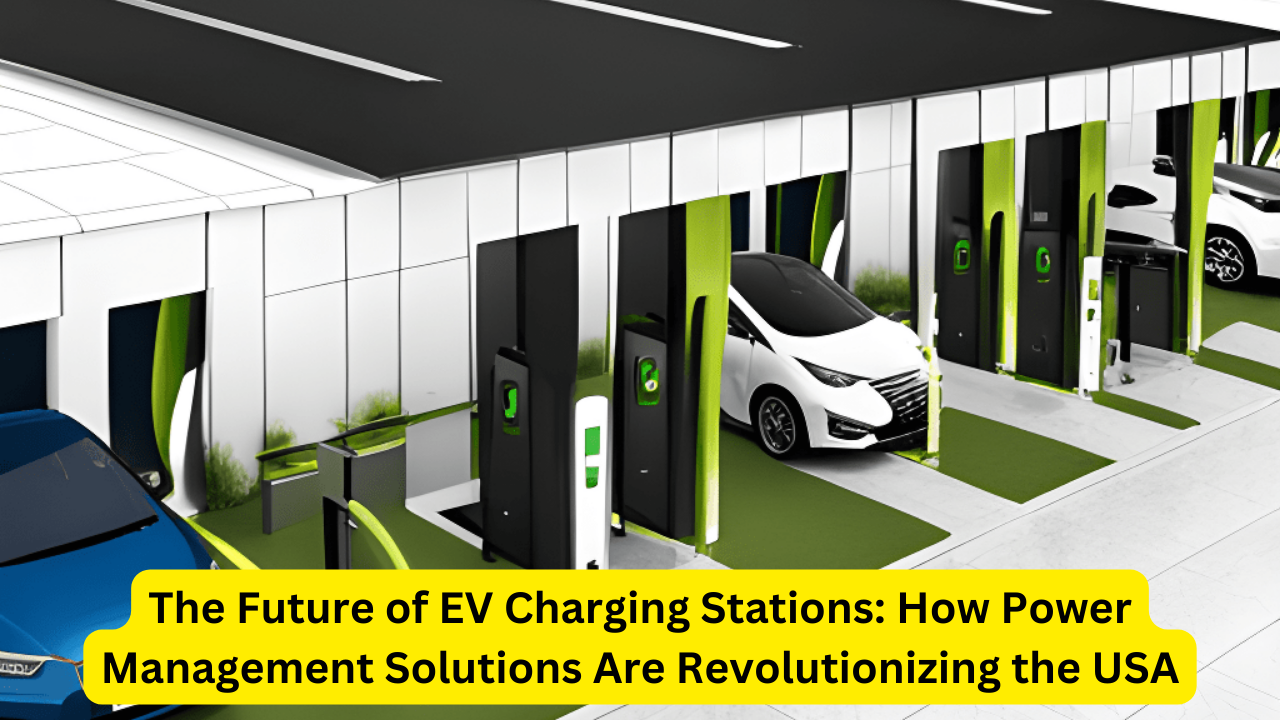The Future of EV Charging Stations: Revolutionizing the USA

The Future of EV Charging Stations: Revolutionizing the USA, In recent years, the rapid advancement in electric vehicle (EV) technology has driven a significant increase in the demand for EV charging stations across the United States. As more drivers transition to electric vehicles, the need for efficient and reliable charging infrastructure becomes increasingly critical. This article explores how power management solutions are enhancing the performance and accessibility of EV charging stations, setting a new standard in the industry.
Understanding the Importance of EV Charging Stations
EV charging stations are essential for the widespread adoption of electric vehicles. They provide the necessary power to recharge EV batteries, enabling drivers to use electric vehicles for daily commutes and long-distance travel. However, the deployment and operation of these charging stations come with various challenges, including power supply management, charging speed, and availability.
Power Management Solutions: The Key to Optimizing EV Charging Stations
To address the complexities of EV charging, innovative power management solutions have emerged. These solutions are designed to enhance the efficiency of EV charging stations and ensure that they can meet the growing demand for electric vehicle charging. Here’s how these solutions are making a difference:
1. Advanced Grid Integration
Advanced grid integration is a crucial component of modern power management solutions. By connecting EV charging stations to the electrical grid in an intelligent way, these systems optimize the distribution of electricity, reduce grid congestion, and ensure that power is available where it’s needed most. This integration helps prevent overloading and ensures a stable supply of electricity, even during peak demand times.
2. Smart Charging Technology
Smart charging technology allows EV charging stations to adjust charging speeds based on various factors such as electricity demand, grid capacity, and user preferences. This flexibility not only improves the efficiency of the charging process but also helps balance the load on the electrical grid. Smart charging systems can also provide real-time data and analytics to both operators and users, enhancing the overall charging experience.
3. Energy Storage Systems
Energy storage systems play a pivotal role in managing the power requirements of EV charging stations. By storing excess energy during off-peak hours and releasing it during peak times, these systems help smooth out fluctuations in electricity demand. This capability ensures that charging stations can maintain optimal performance and availability, even when the grid is under stress.
4. Renewable Energy Integration
Incorporating renewable energy sources such as solar and wind power into EV charging stations is another way power management solutions are advancing. By harnessing clean energy, charging stations can reduce their reliance on traditional power sources and lower their environmental impact. Renewable energy integration also helps stabilize energy costs and contributes to a more sustainable energy future.
5. Real-Time Monitoring and Maintenance
Real-time monitoring and predictive maintenance are essential for ensuring the smooth operation of EV charging stations. Advanced power management solutions provide continuous monitoring of equipment performance and can identify potential issues before they lead to system failures. This proactive approach minimizes downtime and ensures that charging stations are always ready to serve users.
The Impact of Power Management Solutions on the EV Charging Infrastructure
The implementation of power management solutions has a profound impact on the EV charging infrastructure in the USA. Here are some of the key benefits:
1. Increased Efficiency
Power management solutions enhance the efficiency of EV charging stations by optimizing power usage and reducing energy waste. This increased efficiency not only benefits users by providing faster and more reliable charging but also helps operators reduce operational costs.
2. Improved Accessibility
With advancements in power management, EV charging stations can be deployed in a wider range of locations, including areas with limited access to the electrical grid. This improved accessibility helps expand the network of charging stations and makes it easier for electric vehicle owners to find charging points.
3. Enhanced User Experience
The integration of smart charging technology and real-time data provides a better user experience by offering more control and flexibility over the charging process. Users can easily monitor their charging status, manage their charging preferences, and even schedule charging sessions to take advantage of lower electricity rates.
4. Support for Rapid EV Adoption
As the number of electric vehicles on the road continues to grow, the demand for reliable charging infrastructure increases. Power management solutions support this rapid adoption by ensuring that charging stations can meet the evolving needs of electric vehicle owners and provide consistent, high-quality service.
5. Contribution to Sustainability Goals
By integrating renewable energy sources and reducing reliance on fossil fuels, power management solutions contribute to broader sustainability goals. These solutions help lower the carbon footprint of EV charging stations and support the transition to a greener, more sustainable energy future.
Conclusion
The integration of advanced power management solutions is revolutionizing the landscape of EV charging stations in the USA. By enhancing efficiency, improving accessibility, and supporting sustainability goals, these solutions play a critical role in the continued growth of electric vehicle adoption. As technology continues to advance, we can expect even greater innovations that will further optimize the performance and accessibility of EV charging stations.



